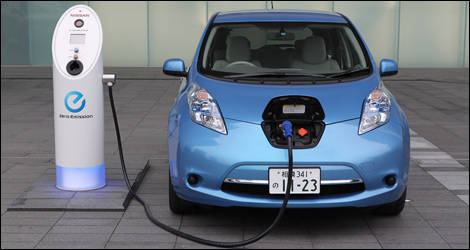Lithium is hailed as the new gold; however, there are alarming scenarios in which the precious resource gets depleted in a hurry. This material is on everyone's lips, but as previously mentioned, lithium carbonate accounts for only 7% of an electric car battery.
Supply
Lithium can be extracted through relatively clean processes (unlike copper, for instance, which requires hydrochloric acid or cyanide). It just takes time. At the world's largest salt flat in Salar de Uyuni, Bolivia, extraction involves a long evaporation process.
Earth's continents reportedly contain anywhere between 10 and 30 million tons of lithium, while the oceans hide 240,000 billion tons (0.17 gram per cubic metre).
Lithium extraction initially started in Chile. Since then, Bolivia, Australia, China, the United States and Canada have all joined the race, leading to a global drop in costs. Battery recycling is another tool that will allow countries to ensure a competitive supply of lithium, so much so that battery manufacturers won't even need local ore bodies.
Cost
Unlike crude oil, lithium doesn't have stock prices, so mining companies are the ones that determine its value. Since lithium carbonate (Li2CO3) is easier to produce than pure lithium, it costs around $5,500/ton (2013). In 2009, lithium salt cost $3,000/ton. Consequently, cobalt ($28,250/ton) and manganese ($3,850/ton), which are both present in lithium-ion batteries, were recycled at the end of the battery's life. But that was all before people realized that lithium would become the electric car's holy grail.
References :
www.acktuwiki.fr
www.indiatimes.com
University of California
Supply
Lithium can be extracted through relatively clean processes (unlike copper, for instance, which requires hydrochloric acid or cyanide). It just takes time. At the world's largest salt flat in Salar de Uyuni, Bolivia, extraction involves a long evaporation process.
Earth's continents reportedly contain anywhere between 10 and 30 million tons of lithium, while the oceans hide 240,000 billion tons (0.17 gram per cubic metre).
Lithium extraction initially started in Chile. Since then, Bolivia, Australia, China, the United States and Canada have all joined the race, leading to a global drop in costs. Battery recycling is another tool that will allow countries to ensure a competitive supply of lithium, so much so that battery manufacturers won't even need local ore bodies.
Cost
Unlike crude oil, lithium doesn't have stock prices, so mining companies are the ones that determine its value. Since lithium carbonate (Li2CO3) is easier to produce than pure lithium, it costs around $5,500/ton (2013). In 2009, lithium salt cost $3,000/ton. Consequently, cobalt ($28,250/ton) and manganese ($3,850/ton), which are both present in lithium-ion batteries, were recycled at the end of the battery's life. But that was all before people realized that lithium would become the electric car's holy grail.
 |
| Nissan Leaf (Photo: Nissan) |
References :
www.acktuwiki.fr
www.indiatimes.com
University of California





